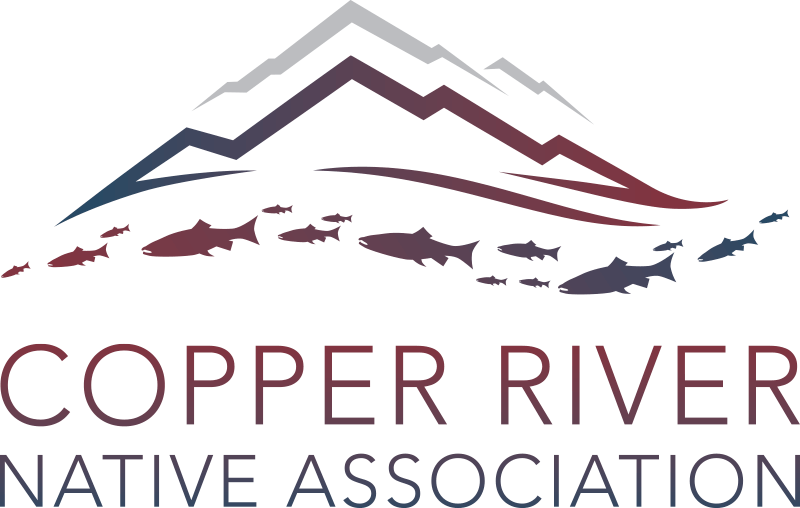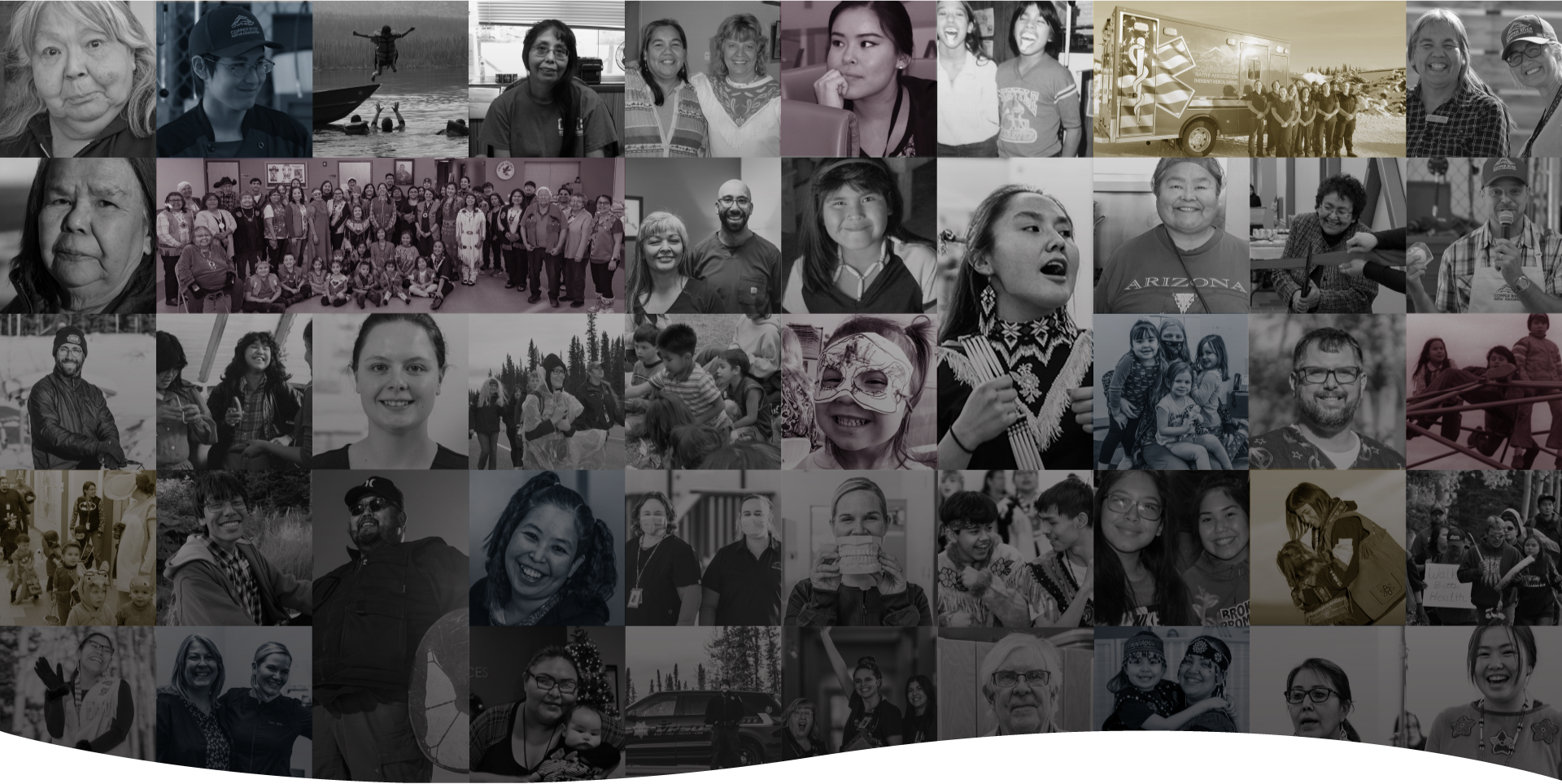
Celebrating
50 Years
of Service
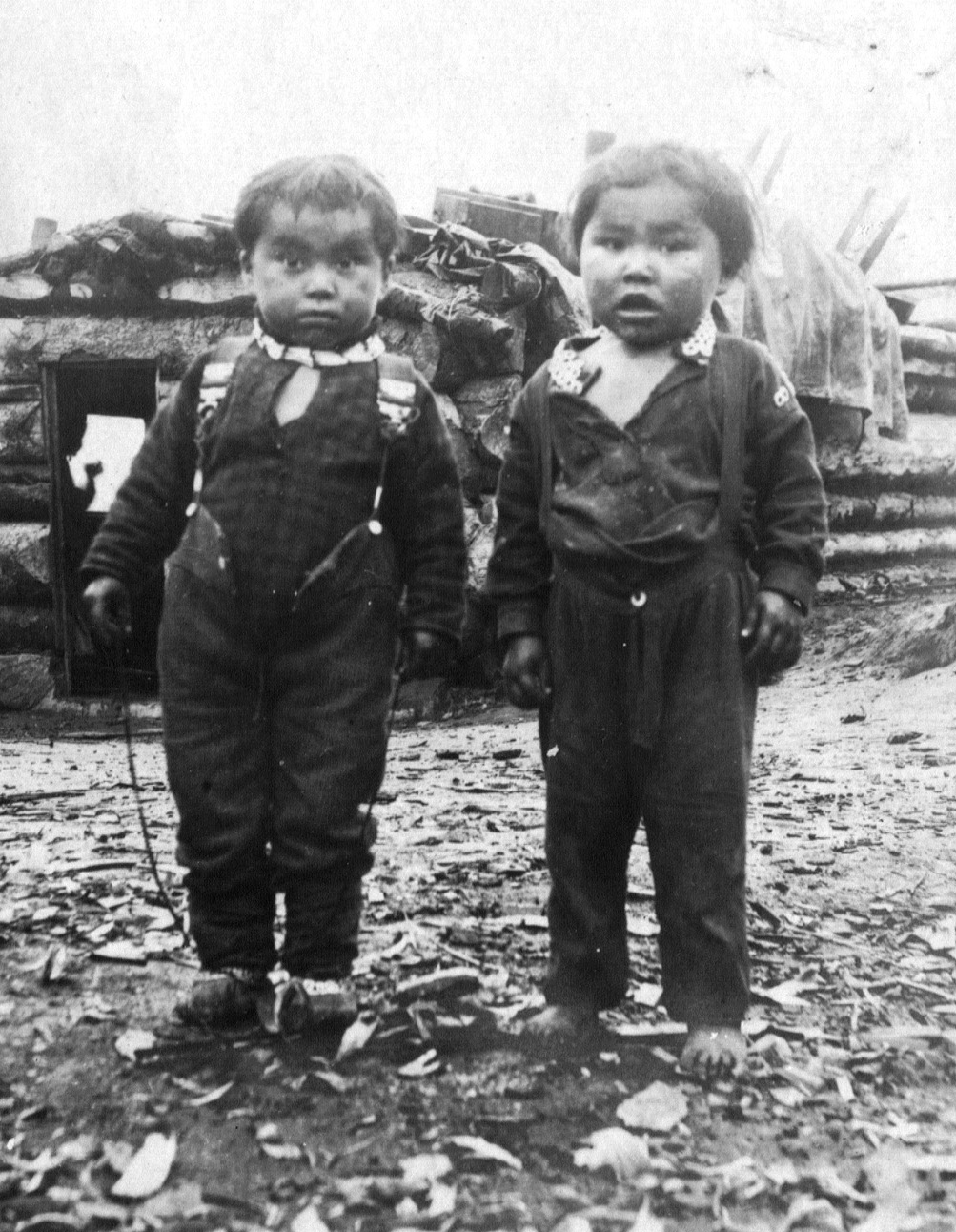
Our elders pass on traditional ways of knowing. They teach us to observe the natural patterns around us, like those of The River. We remember the seasons of the past, work hard in the present, and plan for the future. We acknowledge CRNA is the result of the vision our elders held to and the efforts they put forth and we are thankful as we remember, work, and plan.
Koht’aene
Our People Today, Tomorrow,
and Forever.
August 15, 1964, marks the official day 1975 of the birth of The Promise. On this day, members of the Alaska Native Brotherhood and Sisterhood met for a meeting where, unanimously and fearlessly, they committed to resolve the problems of the Native people of Copper River.
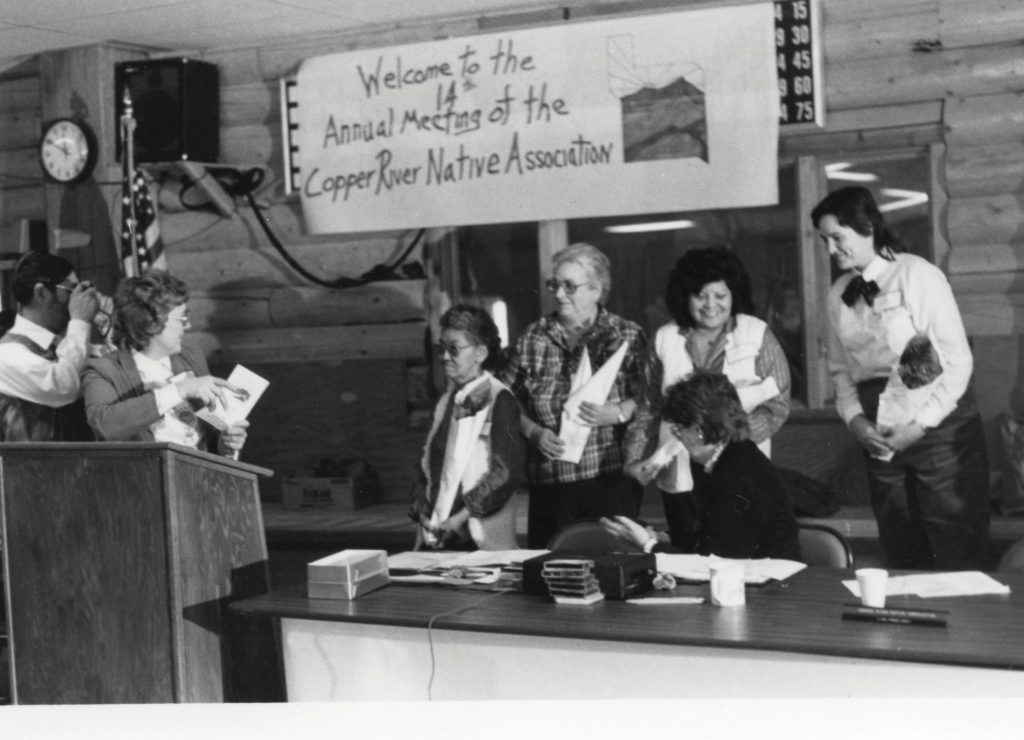
IHS authorized the Alaska Native Health Board to provide the Alaska Area Native Health Service with input for its programs.
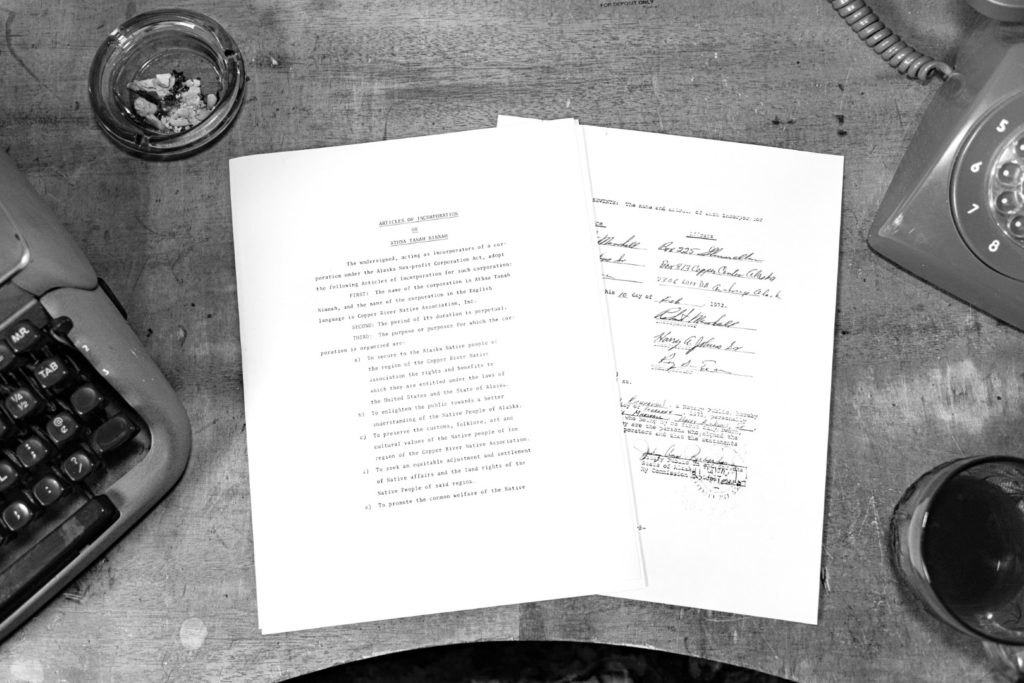
Copper River Native Association was formally incorporated as a non-profit organization, one year following the passage of the Alaska Native Claims Settlement Act (ANCSA).
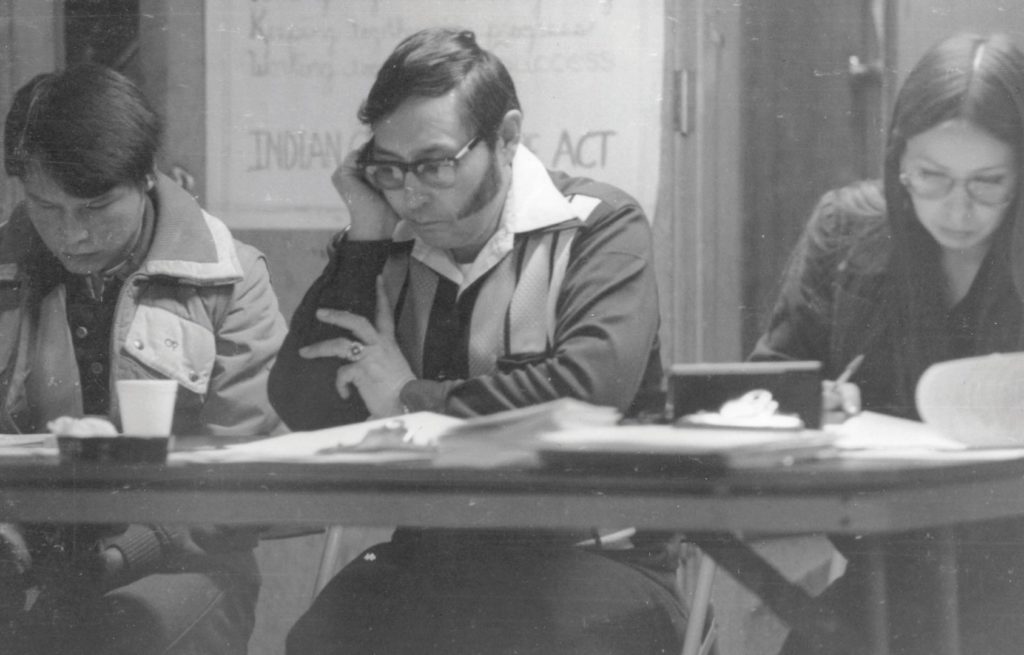
The motto posted on the wall behind Robert Marshall begins: Coming Together is a Beginning
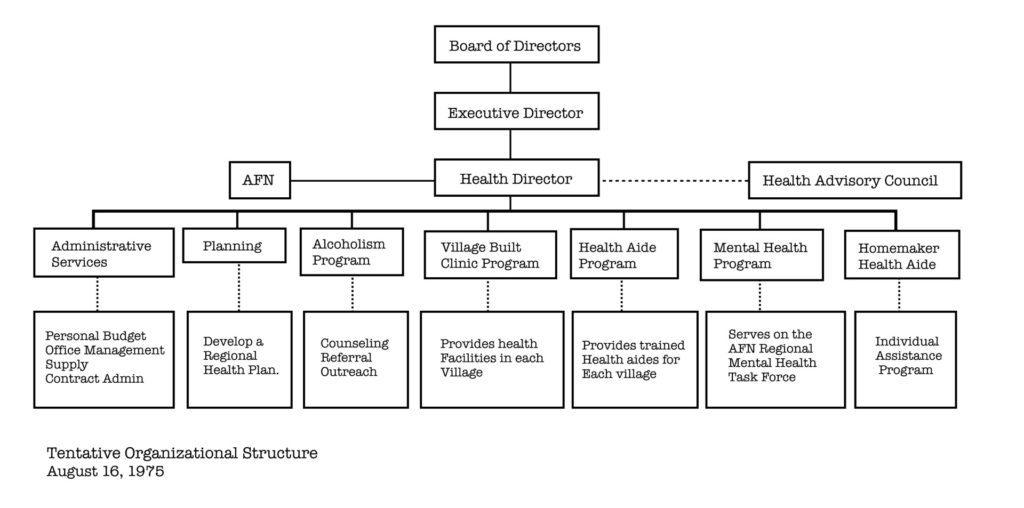
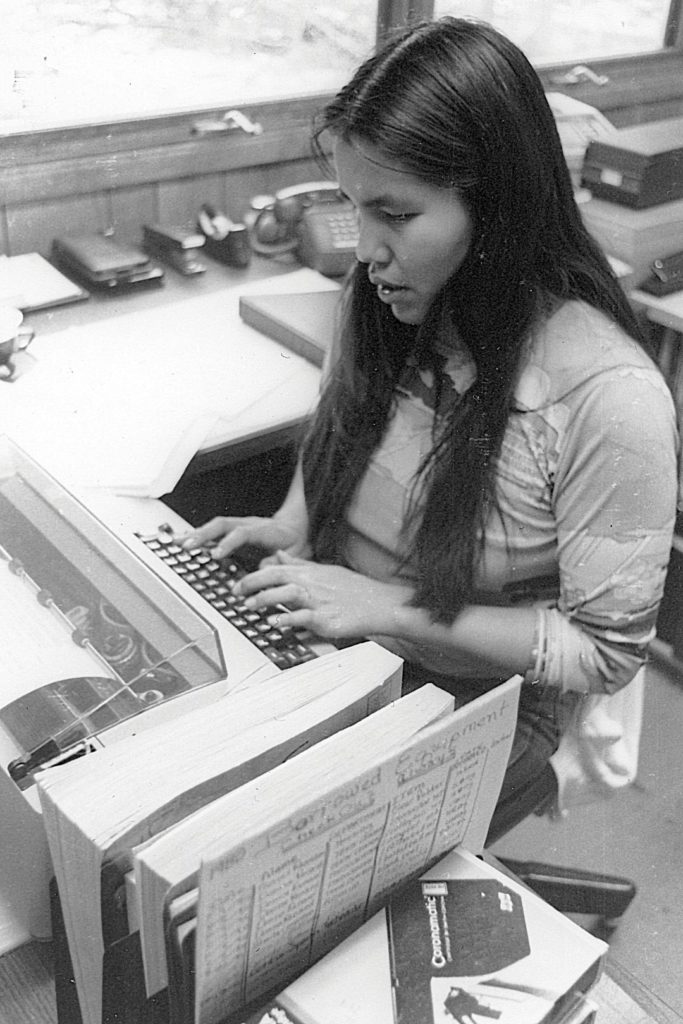
Katherine McConkey begins her career of CRNA service as an administrative assistant in the late 70’s.
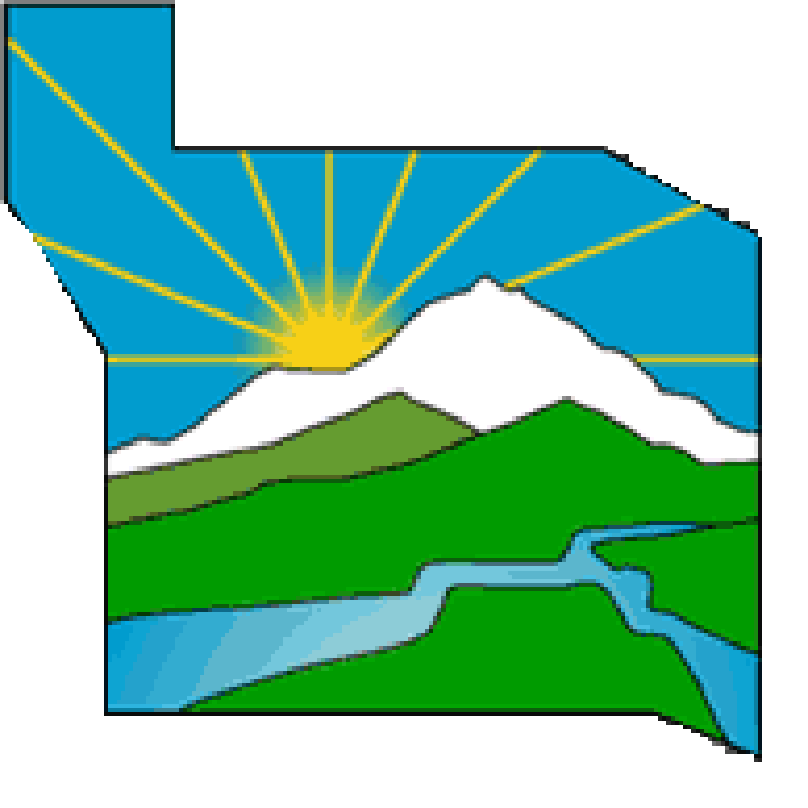
The newly created CRNA logo represents the service area of the organization.
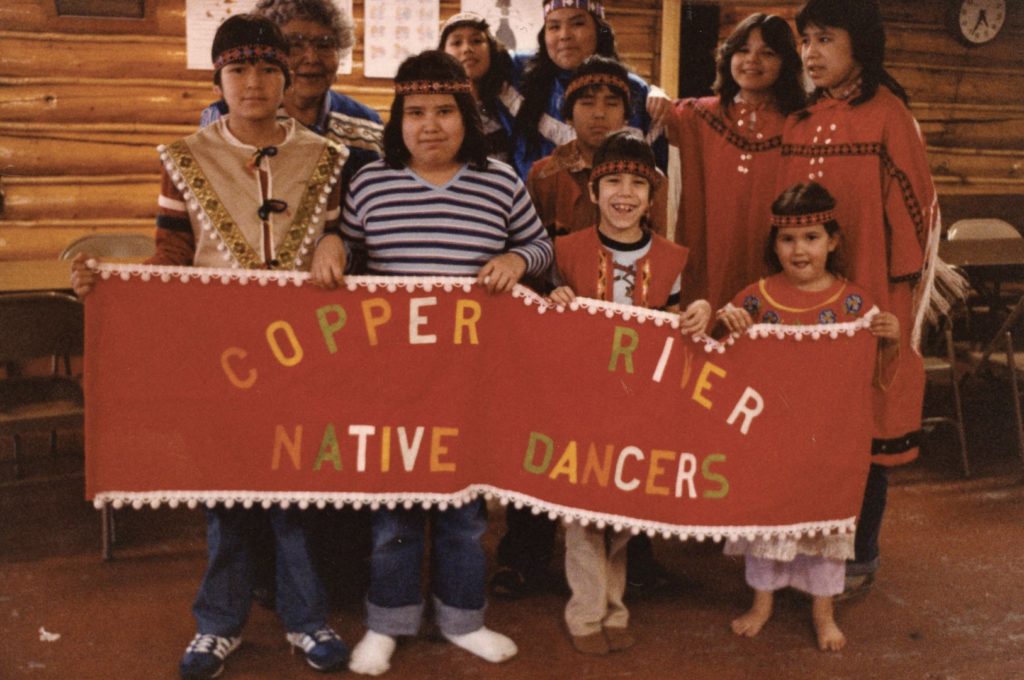
Copper River Native Dancers practice traditional songs and dances through the Johnson O’Malley Program. A program designed to pass on traditional language, dance, song, and handicrafts, including the making of regalia.
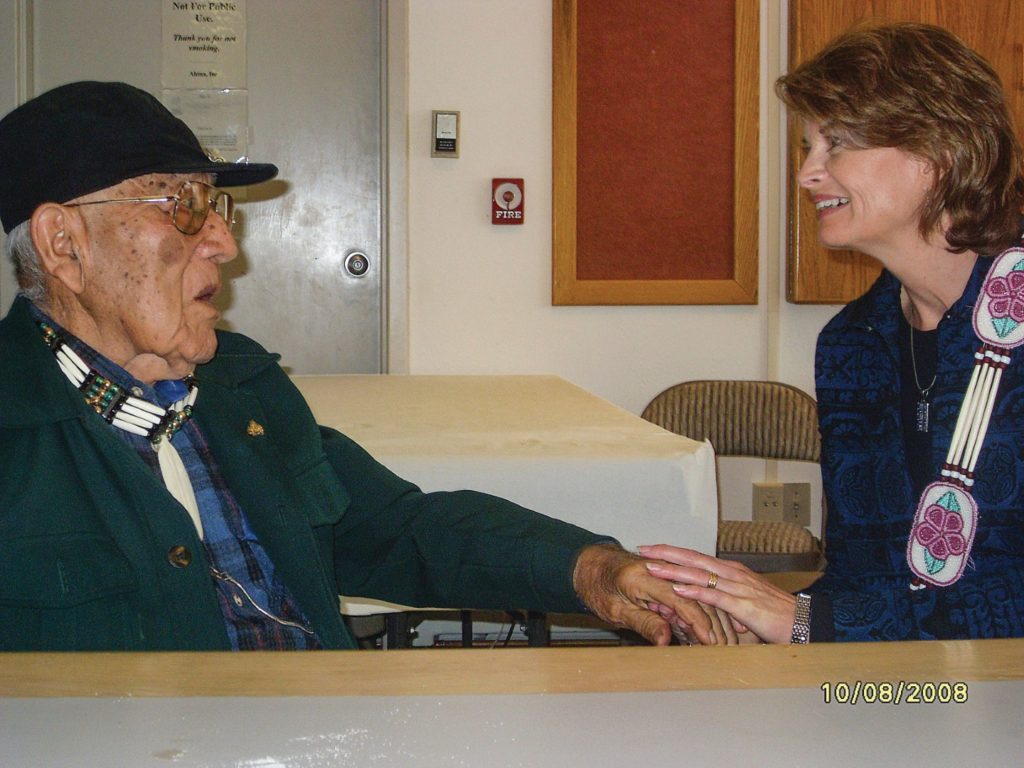
Traditional Chief Ben Neeley would interpret English to Ahtna for Elders during Annual Meeting in the early years of the organization. As an advocate and leader he held many positions. Seen here, Ben Neeley with Senator Lisa Murkowski in 2008.
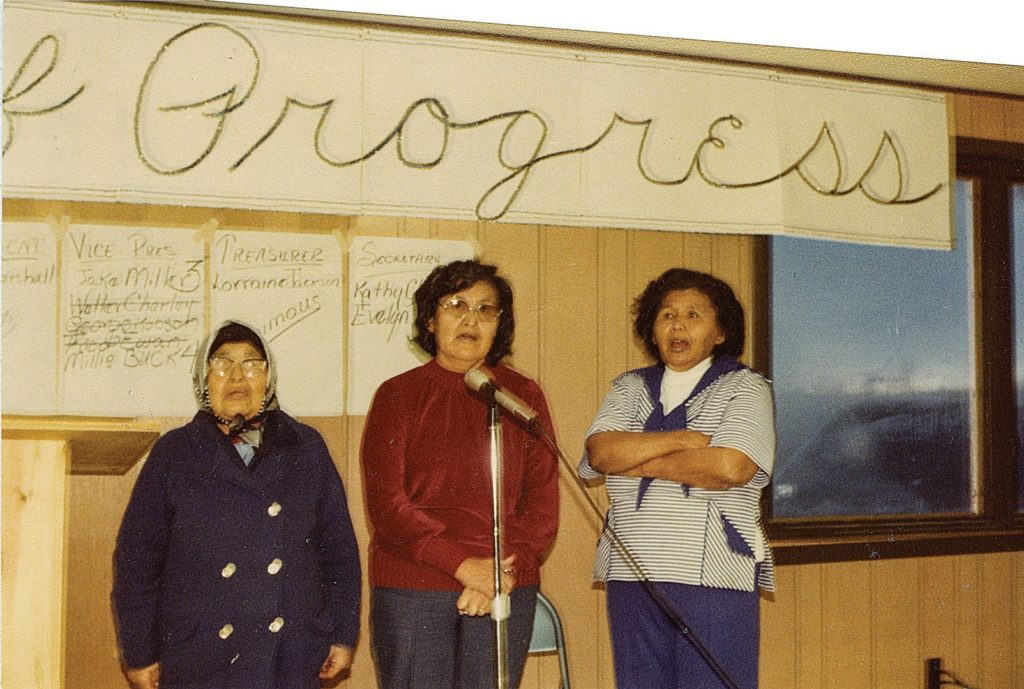
Photo includes from left to right: Martha Jackson, Emma Bell, Elizabeth Pete sing at the 10th Annual Meeting. Early Annual Meeting celebrations often showcased tribal members’ talents.
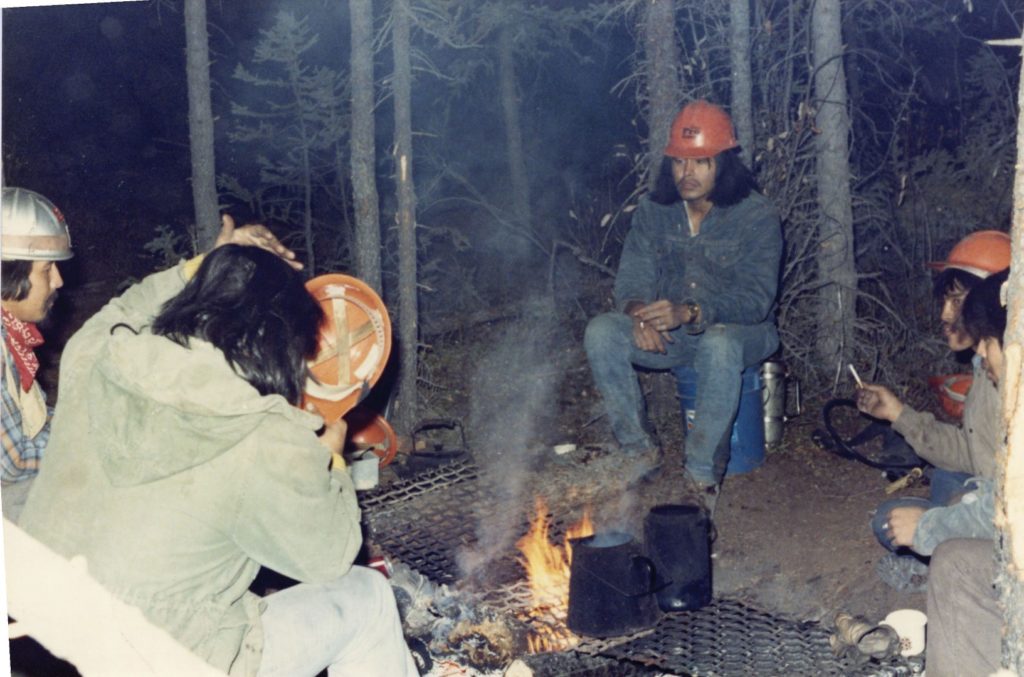
The fire crew was the first fire crew established in Alaska outside government agency oversight. In future years the team upgraded to “Hot Shots,” a term that refers to highly skilled fire crews.
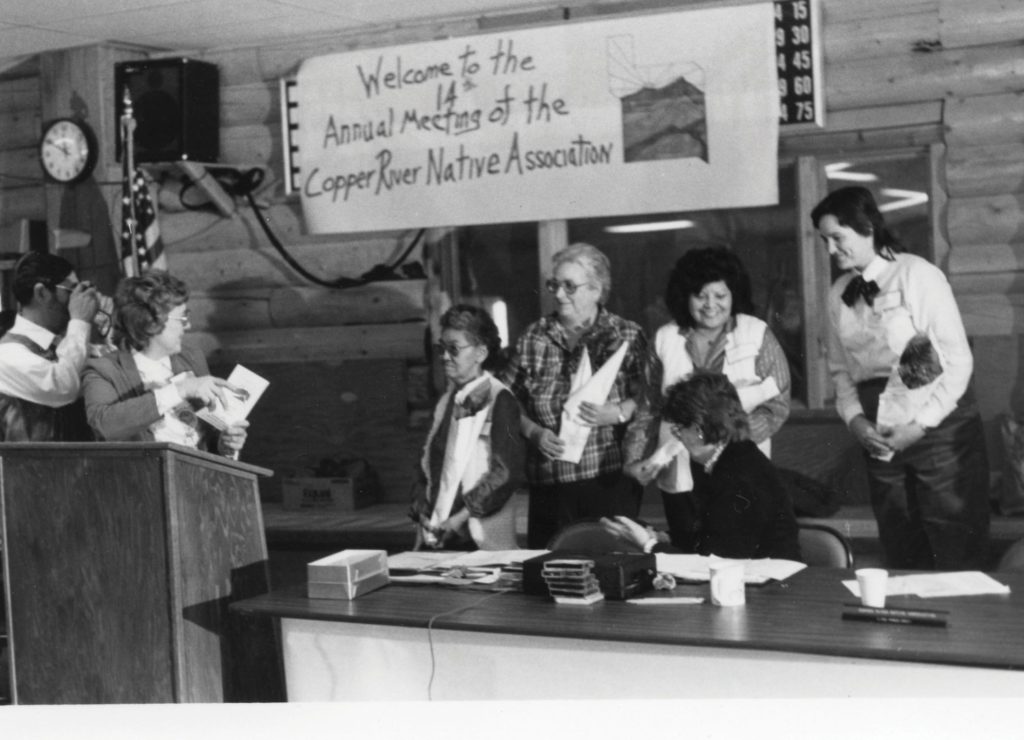
The Villages Are CRNA
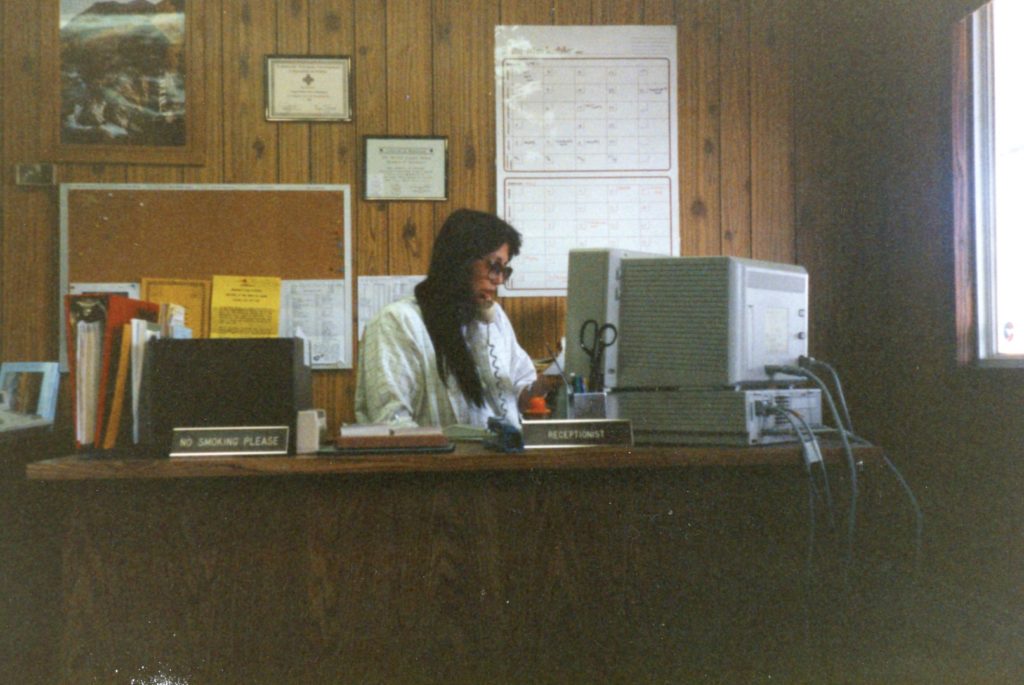
Employees benefit from training and scholarship programs, increasing organizational ability. Pictured, Anna Bell-Hand graduated from AVTEC through CRNA’s Tuition Assistance Program. Elizabeth Pete also graduated (Not Pictured).
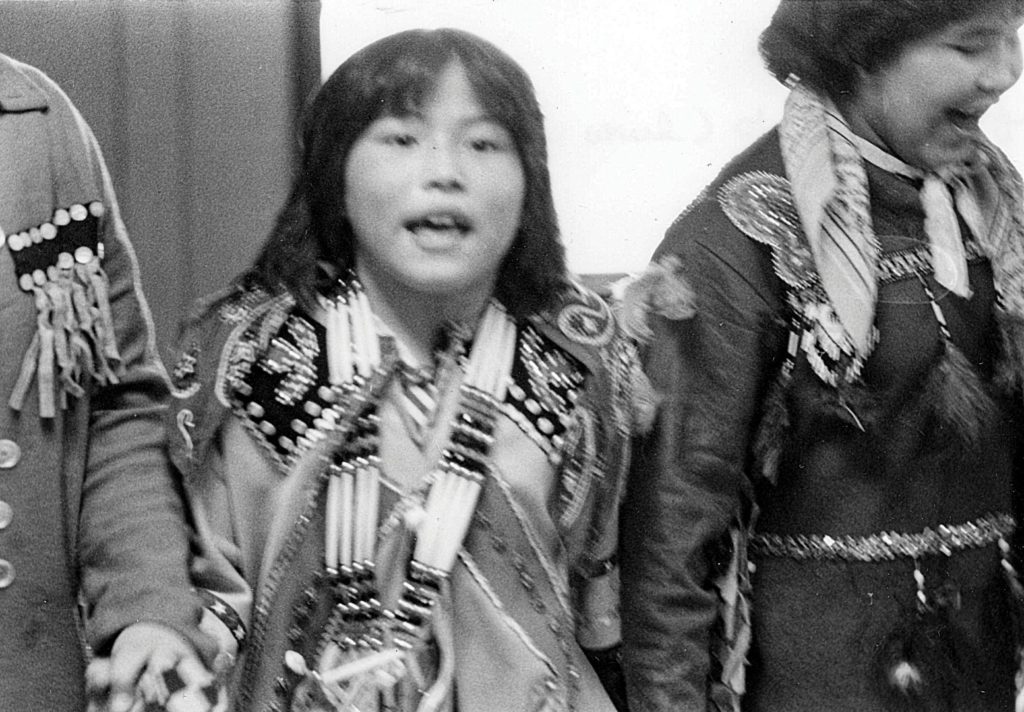
“I remember the prevention technicians program… Trips, dancing, basketball, one time we even climbed up the hill and drew the horizon… and I remember feeling safe for that amount of time.” Charlene Nollner -Future Board President
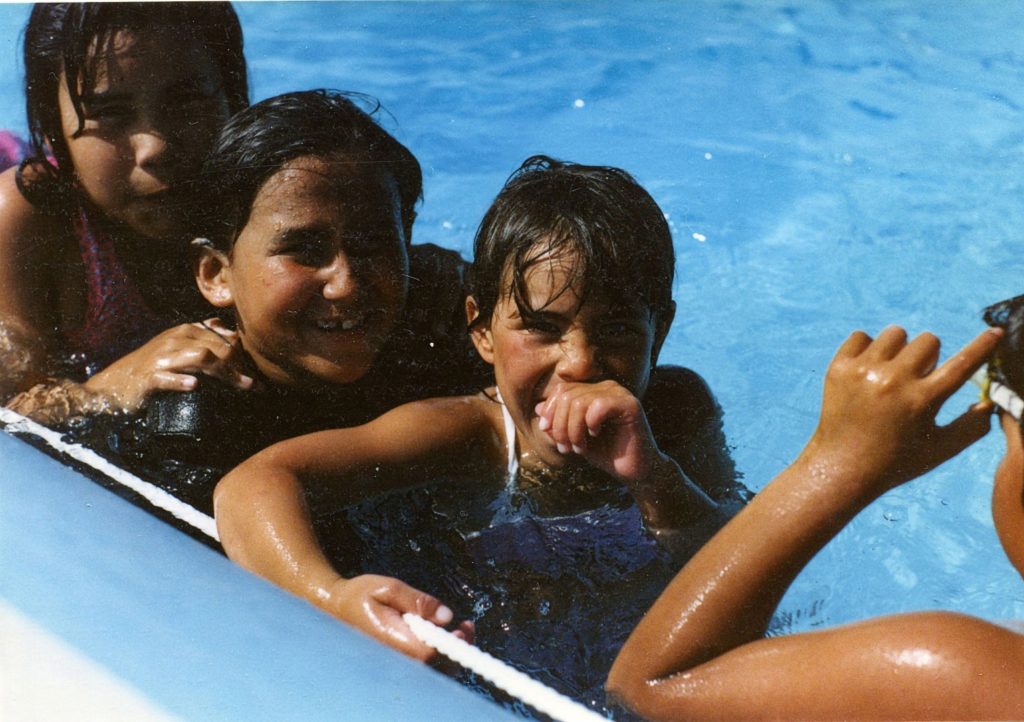
The Swimming Safety Program was a hallmarkof the Copper River Region in the late 80’s through the early 90’s. More than 75 children per summer participated in learning to swim and conduct water rescues that involved above ground pools.
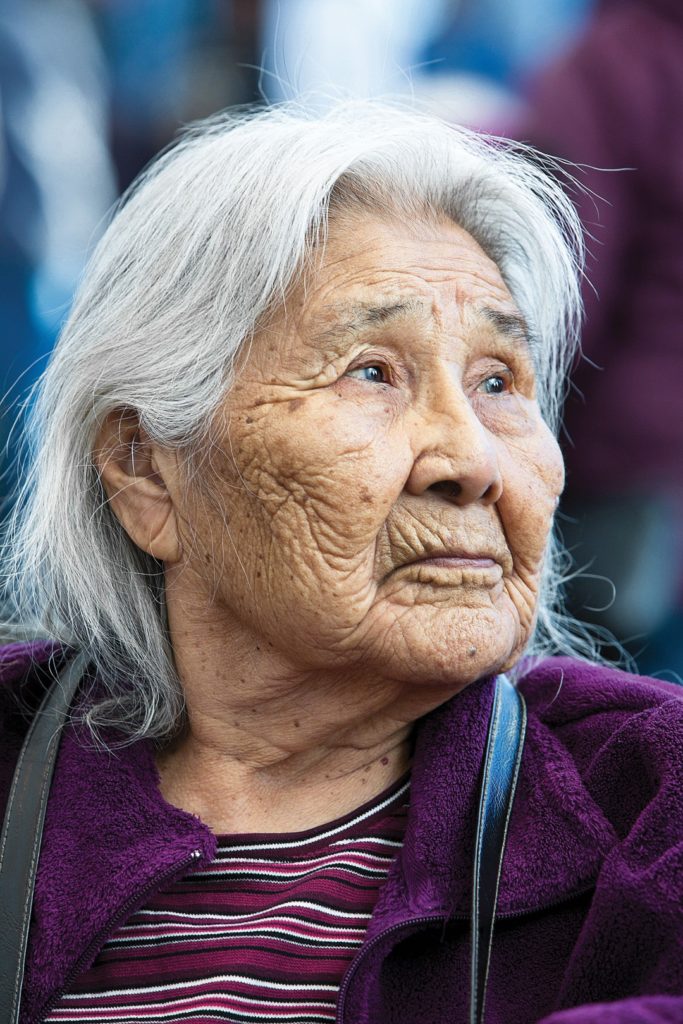
Katie John vs the United States of America Katie John wins subsistence fishing rights after three decades of litigation in defense of the Ahtna people.
The opening of ANMC allows Native Alaskan Healthcare to reach national standards. Hospital construction was recorded as $107 billion.
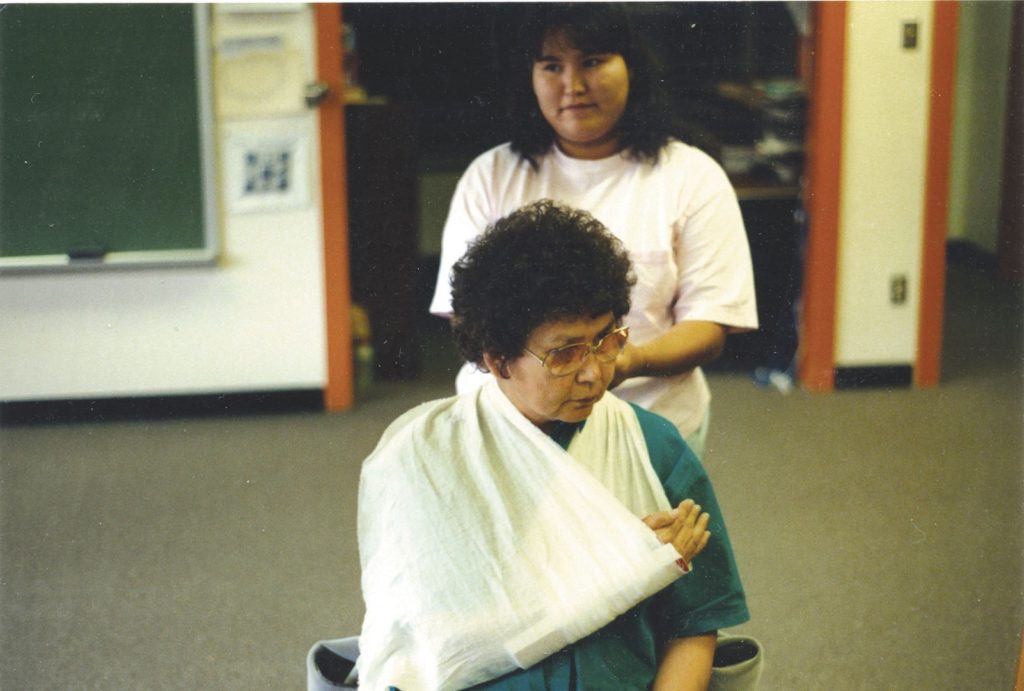
Teaching First Aid and Outdoor Safety.
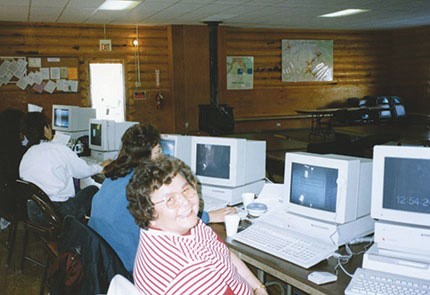
CRNA Learning Computers in the 90’s.
ANTHC initiates the Dental Health Aide Therapist Program in Rural Alaska.
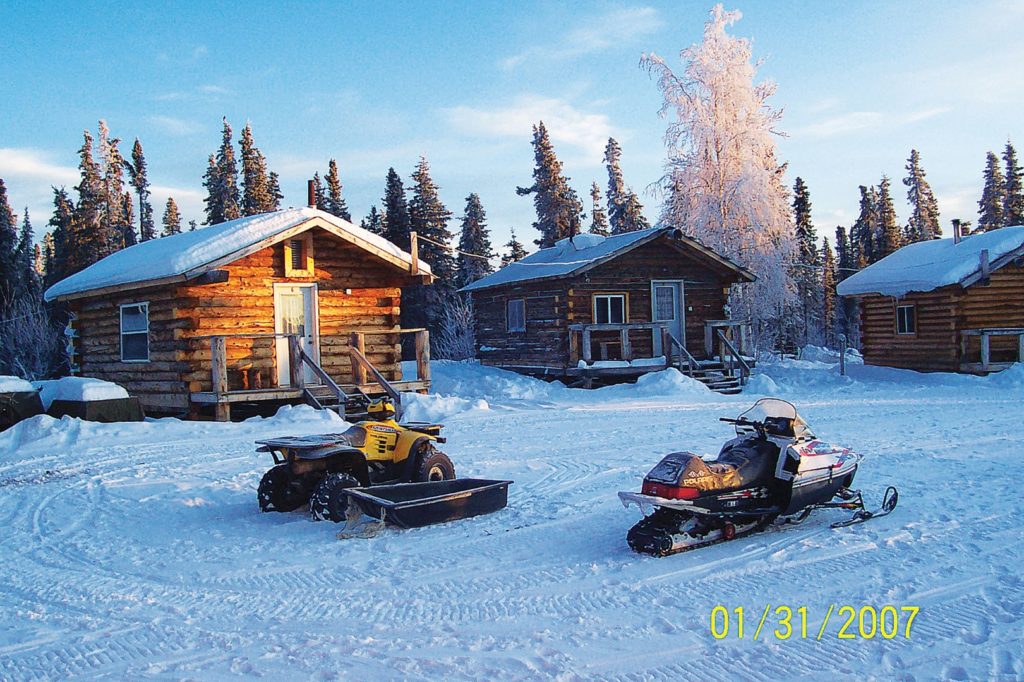
By 2003, 97 clients had completed the addiction recovery program at the Hudson Recovery Camp.
CRNA moves to self governance in the 90’s after successfully negotiating IHS and BIA compacts.
Behavioral Health Aide training begins (ANTHC).
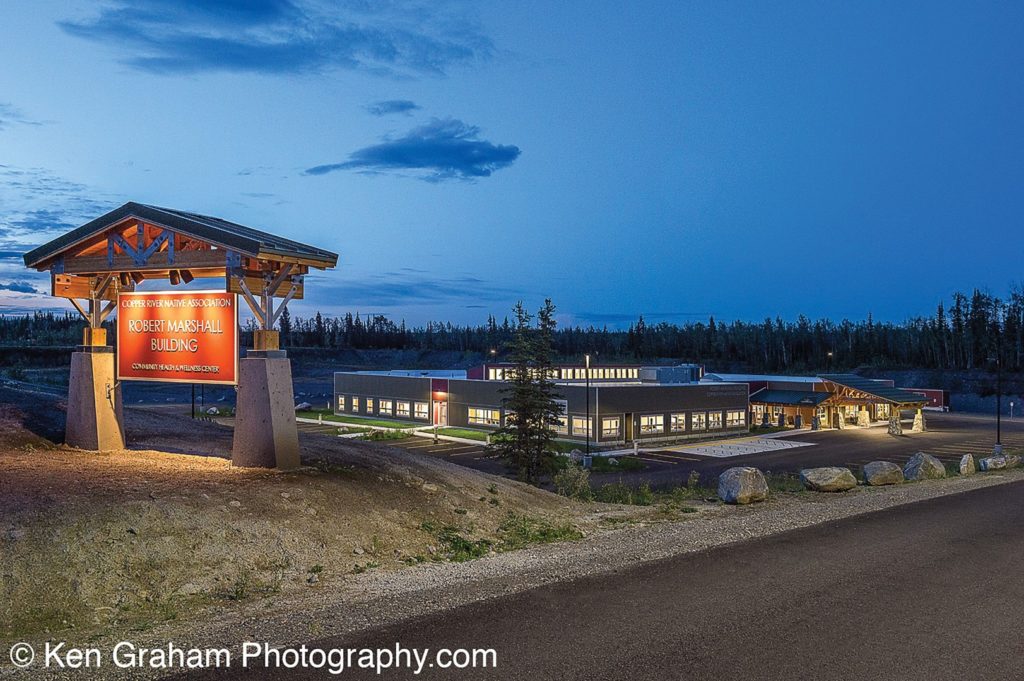
Constructed in Copperville The Newly Constructed Robert Marshall Building allows for service expansion.
CRNA undergoes re-branding. The new logo represents elements of the Copper River Valley and Denali, so as to include the Cantwell service area.
Child Development Employee. Childcare becomes available to all CRNA employees, increasing employee capacity.
Behavioral Health is the first to utilize telehealth technology. Telehealth services would surge just two years later as the COVID-19 pandemic suspends face to face appointments.
CRNA Responds to the COVID-19 Pandemic by equipping villages with over 400 safety and sanitation kits, building testing and vaccination teams, and implementing safety measures.
CRNA transitions to Incident Command System, suspending regular services for the first time due to the COVID-19 Pandemic.
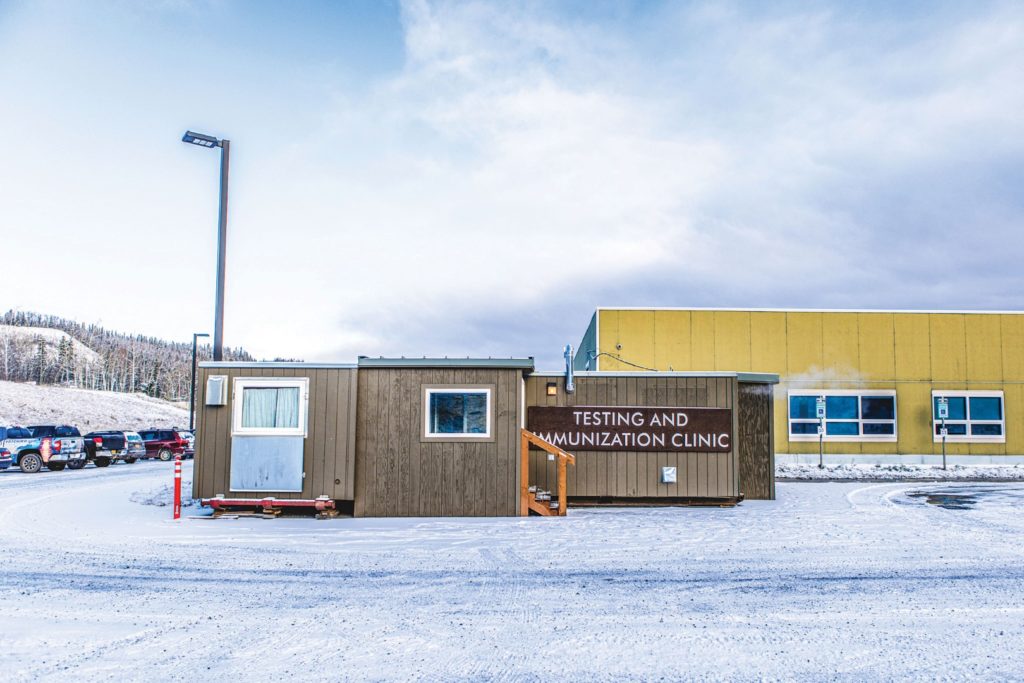
A separate testing facility is constructed in response to the COVID-19 pandemic.
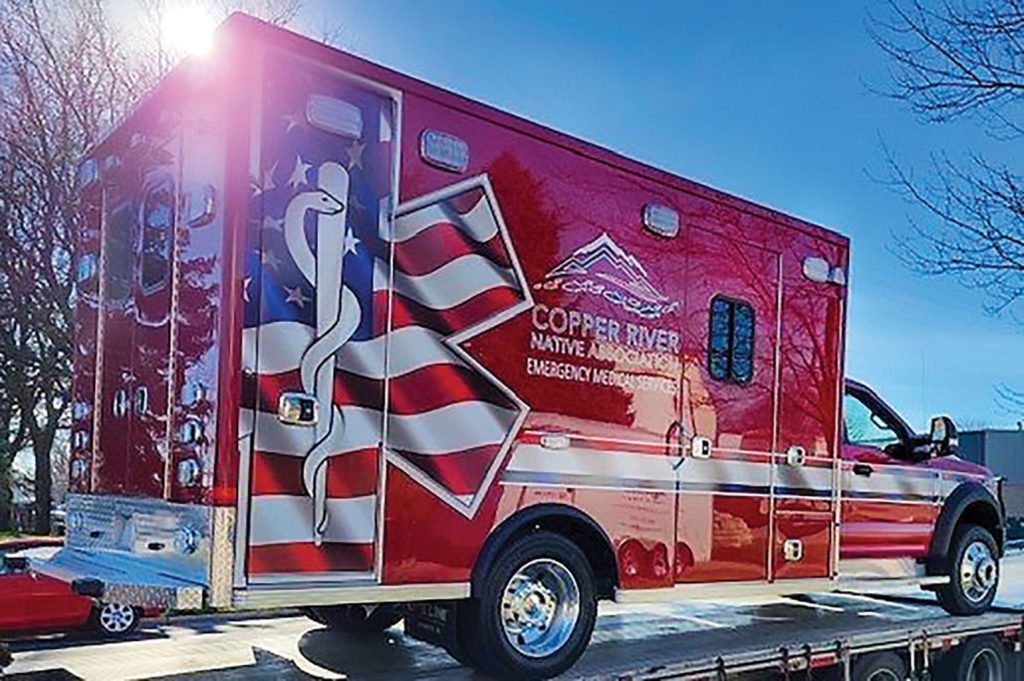
CRNA, in partnership with Ahtna Inc. purchases their first ambulance. The ambulance is not used to respond to 911 calls at this time.
